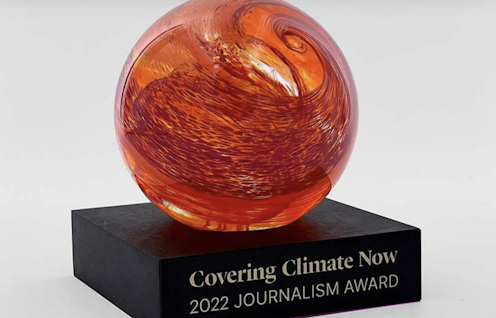
You may remember seeing an article we published in April last year in which climate scientists, James Dyke, Wolfgang Knorr and Robert Watson, set out the problems inherent in the idea of net zero. Climate activist Greta Thunberg said the article was “one of the most important and informative texts I have ever read on the climate and ecological crises” and the story has now been recognised with a journalism award from Covering Climate Now, a 460-strong media partnership focused on driving coverage of the climate crisis.
Net Zero – the idea that we can achieve a balance of the carbon we emit into the atmosphere with the carbon we remove from it – has gained traction with governments and companies worldwide. It is used as the driving force behind policies to tackle climate change and a way to persuade the public of environmental credentials. But to our authors, the relentless focus on offsetting and speculative technologies is a dangerous distraction that puts off meaningful action.
It is a strong personal story about the emotional scars of working to act against the climate crisis and their argument had, to our knowledge, never before been put forward by those at the centre of the field in the mainstream media. The idea had been gaining momentum in the academic community but hadn’t yet reached the public sphere, and the story led to significant debate within the field and outside of it.
The article is part of our long-form Insights series, a collaboration between academic authors and Mike Herd and I, The Conversation’s investigations editors, and supported by Research England. The Insights team specialises on stories which centre on investigative research with a strong public interest; human stories with compelling narrative arcs or case studies that grab a reader’s attention. The net zero piece certainly does that.
This article was originally published on The Conversation. Read the original article.







